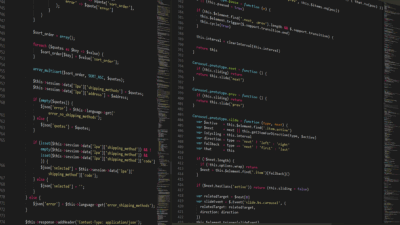In the rapidly evolving sphere of technology, few fields are as promising and transformative as quantum computing. While classical computers have powered our digital age, allowing for advancements in everything from communications to artificial intelligence, quantum hardware is poised to usher in a new paradigm that could revolutionize how we solve complex problems. This article delves into the fundamental aspects of quantum computing, the advancements in quantum hardware, and the implications for various industries.
Understanding Quantum Computing
At its core, quantum computing differs dramatically from traditional computing. Classical computers use bits as the smallest unit of data, which can exist in one of two states: 0 or 1. In contrast, quantum computers utilize quantum bits or qubits, which can exist in multiple states simultaneously due to a phenomenon known as superposition. Furthermore, qubits can be entangled, meaning the state of one qubit can depend on the state of another, no matter the distance between them. This fundamental difference enables quantum computers to process vast amounts of data more efficiently than their classical counterparts.
Advancements in Quantum Hardware
1. Superconducting Qubits
Superconducting qubits have emerged as one of the leading technologies in quantum hardware. Companies like IBM and Google have invested heavily in this approach, utilizing superconducting circuits to create qubits that can be manipulated with high precision. Recent advancements have led to increased coherence times, enabling more complex calculations and algorithms.
2. Trapped Ions
Another significant approach involves trapped ions, where individual ions are controlled using lasers and kept in place by electromagnetic fields. This technology has demonstrated impressive error rates and scalability. Companies such as IonQ and Honeywell are focusing on this method, making strides toward creating more robust quantum systems.
3. Topological Qubits
Topological quantum computing represents a promising but more nascent area of research. It aims to utilize braids of quantum states to create more stable qubits that are less susceptible to errors. Microsoft has been a key player in this domain, looking to leverage materials that exhibit topological properties for more resilient quantum processors.
4. Photonic Quantum Computing
Photonic quantum computing involves using photons (light particles) to perform computations through optical circuits. This approach offers potential advantages in terms of speed and reduced heat generation. Several startups and research institutions are exploring photonic systems, which could lead to more energy-efficient quantum computers.
Implications for Industries
The advancements in quantum hardware are not just technical marvels; they have far-reaching implications across various industries.
1. Pharmaceuticals and Material Science
Quantum computing can significantly accelerate drug discovery and materials science. Its ability to simulate molecular interactions at an unprecedented scale allows researchers to predict how different compounds will interact, potentially slashing the time required to develop new medications from years to mere months.
2. Cryptography
Quantum computers pose a double-edged sword for cybersecurity. While they could break traditional encryption methods, they also pave the way for quantum encryption techniques that promise unbreakable security. This evolution will reshape the landscape of data protection, driving the need for new standards and protocols.
3. Finance
In the finance sector, quantum computing can optimize complex portfolios, assess risks more accurately, and streamline operations. Algorithms that would take classical computers years to process can potentially be executed in seconds on quantum machines, enabling a competitive edge in high-frequency trading and market analysis.
4. Artificial Intelligence
Quantum computing can enhance machine learning algorithms by processing large datasets more efficiently. This capability will have a domino effect on AI applications, improving everything from natural language processing to image recognition and predictive analytics.
Challenges Ahead
Despite its potential, the field of quantum hardware faces numerous challenges, including error rates, coherence times, and the need for better quantum algorithms. Moreover, the transition from theoretical to practical applications requires substantial investment in research and development.
Error Correction
One of the most significant hurdles is quantum error correction. Qubits are inherently fragile, and maintaining their state long enough to complete calculations is a significant challenge. Building more robust error-correcting codes and scalable architectures will be critical for practical quantum applications.
Scalability
Another significant challenge is scalability. Current quantum processors operate with a limited number of qubits, and scaling up while maintaining performance and coherence is essential for tackling larger, more complex problems.
Conclusion
Quantum hardware represents a monumental leap forward in computing technology, with the potential to impact virtually every sector. As research progresses and practical implementations emerge, we find ourselves at the cusp of a new era in computing. Quantum systems promise not only to outperform classical systems in specific tasks but also to challenge our understanding of computation itself. While significant challenges remain, the concerted efforts of researchers and industry stakeholders position quantum computing as a key player in the future of technology. As we stand on the brink of this transformation, the possibilities seem limitless.



